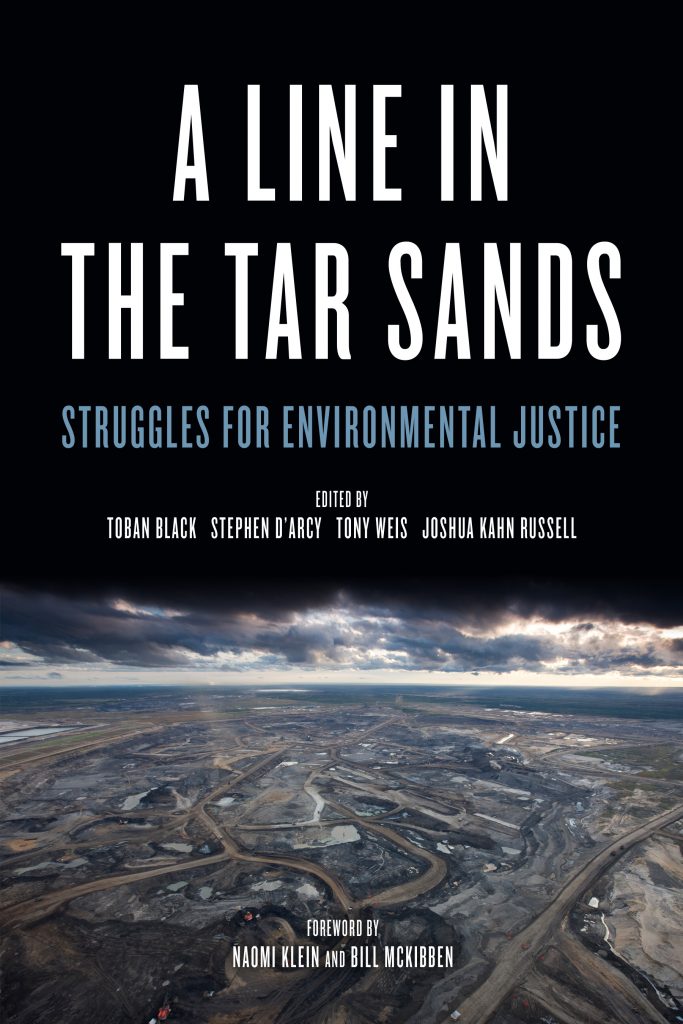By Dan Rowe
Quill and Quire
The essay collection A Line in the Tar Sands: Struggles for Environmental Justice is variously a manual, a call to action, and a series of first-hand accounts of a movement. While the struggle over mining the Alberta tar sands – described repeatedly in the book as the largest industrial project in the world – is one of the most frequently covered stories in this country (especially if stories for foreign news outlets are taken into account), the leaders opposing this project are rarely heard from at this length, in their own words, and with such honesty.
Among the 28 essays, there are a few standouts. The piece by Clayton Thomas-Muller, currently campaign director of the Polaris Institute’s Indigenous Tar Sands Campaign, is worthy of a longer treatment. He writes beautifully about his own activist history and his misgivings with some of it. Thomas-Muller explains what attracted him to fight against the development of the tar sands and how it is essential that Aboriginal peoples and their civil rights remain at the core of any strategy to halt development in Northern Alberta.
There are a series of very important chapters about activists outside the province – from Kalamazoo, Michigan, the site of an Enbridge oil spill, and along the Gulf Coast, where the bitumen that would be transported in the Keystone XL pipeline will be refined; from Sarnia, Ontario, another key site for refining tar sands oil; and even from the U.K. These essays show the wide reach of the issue and the ways tar sands mining may affect entire communities. Macdonald Stainsby’s piece on the global spread of efforts to extract fossil fuels from “extreme” sites is another worthy inclusion.
Not all of the entries are as good as these. Even if they agree with the analysis, readers may become bogged down in essays that delve into Marxist ideology, if only because the prose is off-putting and turgid. Still, A Line in the Tar Sands provides a snapshot of a significant international movement whose success or failure is still very much in doubt.
Back to Stephen D’Arcy, Tony Weis & Toban Black’s Author Page | Back to Joshua Kahn’s Author Page







